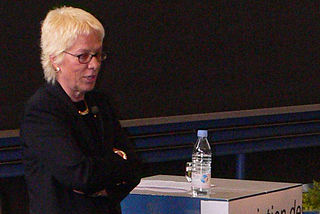
Kofi Atta Annan was a Ghanaian diplomat who served as the seventh secretary-general of the United Nations from 1997 to 2006. Annan and the UN were the co-recipients of the 2001 Nobel Peace Prize. He was the founder and chairman of the Kofi Annan Foundation, as well as chairman of The Elders, an international organisation founded by Nelson Mandela.

The United Nations Assistance Mission for Rwanda (UNAMIR) was established by United Nations Security Council Resolution 872 on 5 October 1993. It was intended to assist in the implementation of the Arusha Accords, signed on 4 August 1993, which was meant to end the Rwandan Civil War. The mission lasted from October 1993 to March 1996. Its activities were meant to aid the peace process between the Hutu-dominated Rwandese government and the Tutsi-dominated rebel Rwandan Patriotic Front (RPF). The UNAMIR has received much attention for its role in failing, due to the limitations of its rules of engagement, to prevent the Rwandan genocide and outbreak of fighting. Its mandate extended past the RPF overthrow of the government and into the Great Lakes refugee crisis. The mission is thus regarded as a major failure.

The Rwandan genocide occurred between 7 April and 15 July 1994 during the Rwandan Civil War. During this period of around 100 days, members of the Tutsi minority ethnic group, as well as some moderate Hutu and Twa, were killed by armed Hutu militias. The most widely accepted scholarly estimates are around 500,000 to 662,000 Tutsi deaths.

The XV International AIDS Conference was held in Bangkok, the capital city of Thailand, from July 11 to July 16, 2004. The main venue for the conference was the IMPACT Muang Thong Thani convention centre at Nonthaburi, north-east of downtown Bangkok. It was the first international AIDS conference to be held in Southeast Asia. International AIDS conferences have been held regularly since the first one in Atlanta in 1985.

Radio Télévision Libre des Mille Collines (RTLM) was a Rwandan radio station which broadcast from July 8, 1993 to July 31, 1994. It played a significant role in inciting the Rwandan genocide that took place from April to July 1994, and has been described by some scholars as having been a de facto arm of the Hutu government.

The failure of the international community to effectively respond to the Rwandan genocide of 1994 has been the subject of significant criticism. During a period of around 100 days, between 7 April and 15 July, an estimated 500,000-1,100,000 Rwandans, mostly Tutsi and moderate Hutu, were murdered by Interahamwe militias.

The 2005 World Summit, held between 14 and 16 September 2005, was a follow-up summit meeting to the United Nations' 2000 Millennium Summit, which had led to the Millennium Declaration of the Millennium Development Goals (MDGs). Representatives of the then 191 member states met in New York City for what the United Nations described as "a once-in-a-generation opportunity to take bold decisions in the areas of development, security, human rights and reform of the United Nations".
Humanitarian intervention is the use or threat of military force by a state across borders with the intent of ending severe and widespread human rights violations in a state which has not given permission for the use of force. Humanitarian interventions are aimed at ending human rights violations of individuals other than the citizens of the intervening state. Humanitarian interventions are only intended to prevent human rights violations in extreme circumstances. Attempts to establish institutions and political systems to achieve positive outcomes in the medium- to long-run, such as peacekeeping, peace-building and development aid, do not fall under this definition of a humanitarian intervention.
The Responsibility to Protect is a global political commitment which was endorsed by all member states of the United Nations at the 2005 World Summit in order to address its four key concerns to prevent genocide, war crimes, ethnic cleansing and crimes against humanity. The doctrine is regarded as a unanimous and well established international norm over the past two decades.

The International Holocaust Remembrance Day, or the International Day in Memory of the Victims of the Holocaust, is an international memorial day on 27 January that commemorates the victims of the Holocaust, which resulted in the genocide of one third of the Jewish people, along with countless members of other minorities by Nazi Germany between 1933 and 1945, an attempt to implement its "final solution" to the Jewish question. 27 January was chosen to commemorate the date when the Auschwitz concentration camp was liberated by the Red Army in 1945.

While there is a consensus in the international community that ethnic groups have been targeted in Darfur and that crimes against humanity have therefore occurred, there has been debate in some quarters about whether genocide has taken place there. In May 2006, the International Commission of Inquiry on Darfur organized by United Nations "concluded that the Government of the Sudan has not pursued a policy of genocide ... [though] international offences such as the crimes against humanity and war crimes that have been committed in Darfur may be more serious and heinous than genocide." Eric Reeves, a researcher and frequent commentator on Darfur, has questioned the methodology of the commission's report.

The Elders is an international non-governmental organisation of public figures noted as senior statesmen, peace activists and human rights advocates, who were brought together by Nelson Mandela in 2007. They describe themselves as "independent global leaders working together for peace, justice, human rights and a sustainable planet". The goal Mandela set for The Elders was to use their "almost 1,000 years of collective experience" to work on solutions for seemingly insurmountable problems such as climate change, HIV/AIDS, and poverty, as well as to "use their political independence to help resolve some of the world's most intractable conflicts".
Gersony Report is the name given to the 1994 findings made by a team under Robert Gersony, which was under contract to the United Nations High Commissioner for Refugees and identified a pattern of massacres by the Rwandan Patriotic Front rebels during and after their military victory in the civil war in post-genocide Rwanda. The findings were suppressed by the United Nations and involved governments for political reasons, and its existence was denied. No final written report was ever completed, though purported early written documentation has been leaked. The validity of Gersony's purported findings continue to be disputed.
Hasan Nuhanović is a Bosnian survivor of the Srebrenica genocide who campaigns "For truth and justice" on behalf of other survivors and relatives of the victims. Hasan, the former U.N. interpreter for Dutch peacekeepers who were stationed in Srebrenica in 1995, at the end of the Bosnian war, has been battling the Dutch state in civil court for nine years. Finally, in July 2011, he won on appeal against the Dutch Government with court stating the Dutchbat are to blame for handing over his family members to forces of Ratko Mladić, who was tried in The Hague. His entire immediate family: mother, father and brother, were murdered by the Bosnian Serb Army and its allies from Serbia proper, when they were handed over to them by Dutch U.N. soldiers after seeking refuge in the UN protection force base at Potočari following the fall of the town of Srebrenica in July 1995. Bosnian investigative journalist Dragan Stanimirović nicknamed him the “Elie Wiesel of Bosnia", in a reference to another activist survivor of genocide. His story, Zbijeg, was published in Bosnian in 2012 and in English as The Last Refuge: A True Story of War, Survival and Life Under Siege in Srebrenica in 2019.

United Nations Security Council resolution 1503, adopted unanimously on 28 August 2003, after recalling resolutions 827 (1993), 955 (1994), 978 (1995), 1165 (1998), 1166 (1998), 1329 (2000), 1411 (2002), 1431 (2002) and 1481 (2003), the Council decided to split the prosecutorial duties of the International Criminal Tribunal for the former Yugoslavia (ICTY) and the International Criminal Tribunal for Rwanda (ICTR) which had previously been under the responsibility of one official, Carla Del Ponte, since 1999.
Rwandan genocide denial is the assertion that the Rwandan genocide did not occur, specifically rejection of the scholarly consensus that Rwandan Tutsis were the victims of a genocide between 7 April and 15 July 1994. The perpetrators, a small minority of other Hutu, and a fringe of Western writers dispute that reality.

Prevention of genocide is any action that works toward averting future genocides. Genocides take a lot of planning, resources, and involved parties to carry out, they do not just happen instantaneously. Scholars in the field of genocide studies have identified a set of widely agreed upon risk factors that make a country or social group more at risk of carrying out a genocide, which include a wide range of political and cultural factors that create a context in which genocide is more likely, such as political upheaval or regime change, as well as psychological phenomena that can be manipulated and taken advantage of in large groups of people, like conformity and cognitive dissonance. Genocide prevention depends heavily on the knowledge and surveillance of these risk factors, as well as the identification of early warning signs of genocide beginning to occur.

The Darfur genocide is the systematic killing of ethnic Darfuri people which has occurred during the ongoing conflict in Western Sudan. It has become known as the first genocide of the 21st century. The genocide, which is being carried out against the Fur, Masalit and Zaghawa ethnic groups, has led the International Criminal Court (ICC) to indict several people for crimes against humanity, rape, forced transfer and torture. According to Eric Reeves, more than one million children have been "killed, raped, wounded, displaced, traumatized, or endured the loss of parents and families".

Princess Sarah Zeid is a Jordanian-American humanitarian and maternal and newborn health activist. Through her marriage to Prince Zeid bin Ra'ad al-Hussein, she is a Jordanian princess and a member of the House of Hashem. Her husband is the heir apparent to the pretender of the abolished throne of Iraq.
Accusation in a mirror (AiM), mirror politics, mirror propaganda, mirror image propaganda, or mirror argument is a hate-speech incitement technique. AiM refers to falsely imputing to one's adversaries the intentions that one has for oneself and/or the actions that one is in the process of enacting. Accusation in a mirror has been cited, along with dehumanization, as one of the indirect or cloaked forms of incitement to genocide, which has contributed to the commission of genocide, for example in the Holocaust and the Rwandan genocide. By invoking collective self-defense, accusation in a mirror is used to justify genocide, just as self-defense is a defense for individual homicide. Susan Benesch remarked that while dehumanization "makes genocide seem acceptable", accusation in a mirror makes it seem necessary.